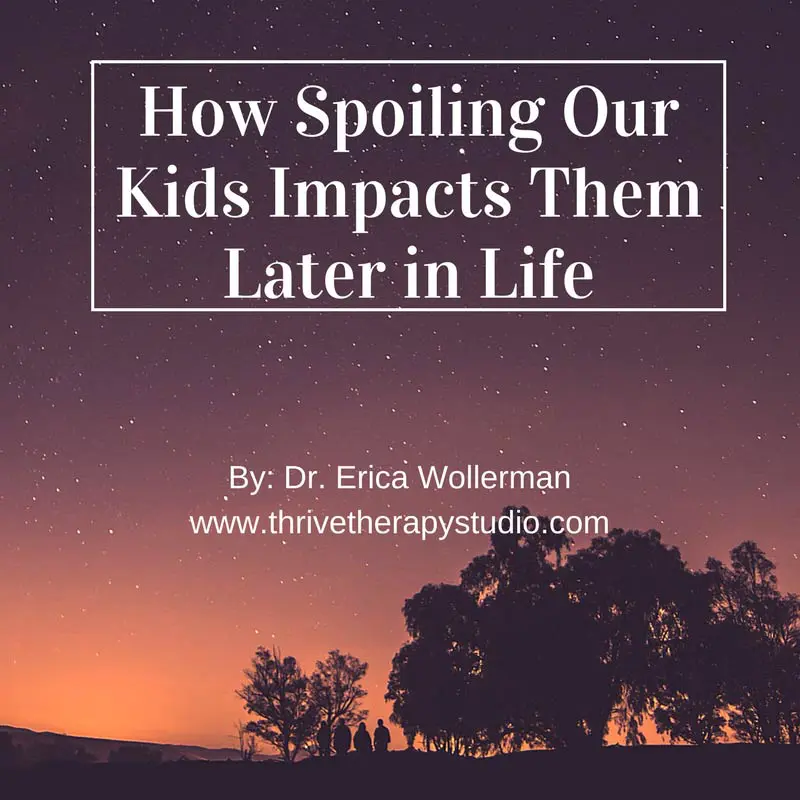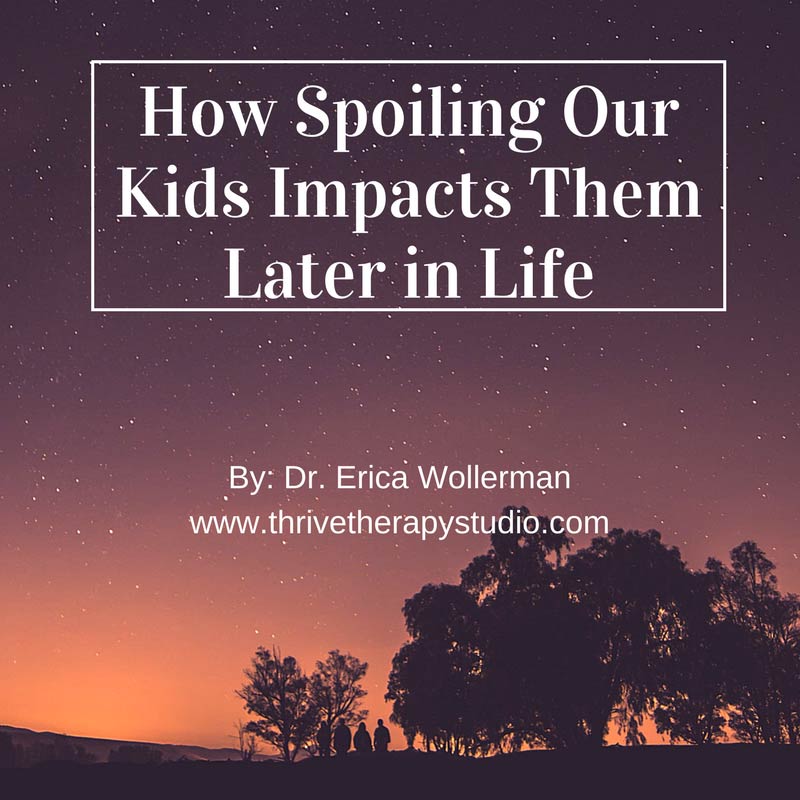I was recently asked to contribute to a discussion on how spoiling may impact kids later in life and I enjoyed this topic so much, I decided to expand on it in a blog of my own. If you would like to see the article I contributed to, please check it out here.
As a child and teen psychologist as well as parenting consultant, I believe that spoiling your children has a huge affect on them in so many ways both later in life and while they are children. I am referencing “spoiling” in terms of not setting limits with your child. While this often goes hand in hand with “helicopter parenting,” for the purposes of this blog, I am only discussing spoiling. If you’d like to read more on helicopter parenting, check out my blog on it here!
Parents often inadvertently spoil their children because they are struggling to set limits for a myriad of reasons… it could be that they are unsure of how to set limits appropriately as it was not modeled for them by their parents. It could also be that they do not want their child to be upset, frustrated, sad, or angry with them. For some parents, their child responds in such a difficult way when they set limits, they simply don’t have the energy to keep setting them. In general, a lack of limits comes from a place of kindness and for many overwhelmed parents, fatigue. While this is perfectly understandable (especially coming from a very tired new mom over here!), unfortunately, there are some lasting effects for kids that do not understand or respect boundaries.
The following are just some of the consequences that can occur for kids that have not had boundaries enforced:
- Low frustration tolerance and difficulties managing strong emotions
- Poor understanding of cause and effect and how their behavior may effect others
- Little drive and ambition, coupled with a general lack of success in one’s career or job
- Lack of accountability
As you can see, these are crucial skills and qualities of being a successful and resilient adult!
Consider the following example: A child I once knew had left their bicycle in the driveway where a car could hit it. I asked them, “what would happen if your parents hit your bicycle because you didn’t put it away?” The child’s response was as follows, “they’ll just buy me a new one.” I was so shocked, appalled, and most of all concerned. This young child had no real understanding of money, the inconsiderate nature of this choice, accountability, or responsibility. And honestly, why would he if his parents would just go ahead and get him a new bicycle?
Setting firm but loving limits for your children gives them an amazing opportunity to develop the skills to deal with frustration, understand cause and effect, learn accountability, and work towards goals which helps in understanding cause and effect. To help a child learn to treat his belongings with more care, parents could respond in the following way.
Letting the child know that you saw that their bike was left out in a place it could be hit. Explaining gently that while it can be annoying or difficult to remember to take the time to take care of our things, that is how we can show we appreciate those things and to ensure we have them for a long time. If the child continues to leave the bike out, I would recommend that you then have a conversation again about how having a bicycle is a responsibility that they might not be ready for and remove that privilege for a period of time (a couple of days). I would also explain that if something happens to the bicycle or a family vehicle because of the bicycle being left out, the child will be responsible for completing chores to pay for damages and earn back the privilege of having the bike.
An even more current example would be a cracked iPhone screen. So often, kids are coming in my office with cracked screens that seem to continually be replaced by parents, who often have insurance plans who pay for it. While I understand that financially this may make sense to parents, I do believe that there should be some natural consequence for a child who cracks their phone. Maybe they need to pay for half the fee or lose the ability to have it for a while. This is how they will learn both the value of money and the importance of treating belongings with respect!
A key element of these conversations around limit setting is compassion and kindness. It is okay to let your child know you are disappointed in their choice, but also let them know that everyone makes mistakes and that it is okay as long as we take steps to fix the harm we cause. This way, you are not being overly punitive but you are still setting and holding a limit with them. After all, the goal is to prepare our children for the world where there are rules, structure, limits, and at times serious consequences.
At Thrive, we are skilled at helping parents set limits effectively and with loving kindness – call us today for a consultation if you are struggling in this area! We are happy to help and approach these sessions without any judgment. Parenting is hard enough, we just want to support you!
If you would like to talk with a Thrive Therapist about yourself, your child, or teen attending therapy, please reach out to us by phone at (858) 342-1304.
As always, thanks for reading and comments are always welcome regarding any issues around child or teen psychotherapy services in San Diego by Thrive Therapy Studio.
To stay in the loop on the services offered and to receive updated information about Thrive, please feel free to sign up for the newsletter through the following link: http://eepurl.com/cvGx5n.
Reach out to start
your healing journey





